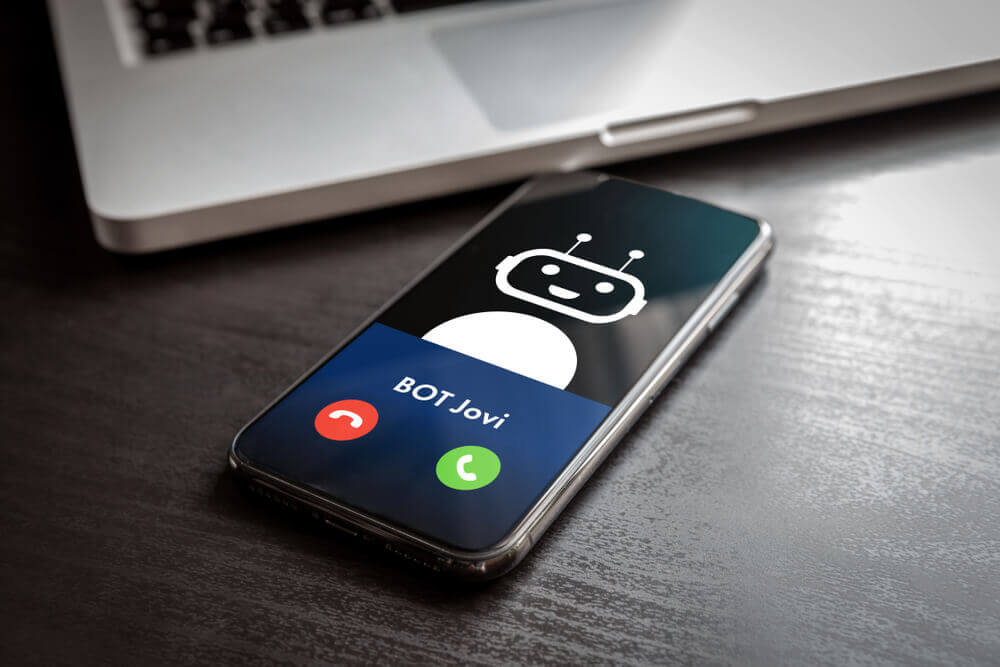Bank will pay New Yorker over $ 232 thousand for spam calls
'25.08.2020'
Vita Popova
According to the lawyer, this is the largest consumer protection ruling on spam calls ever made in federal court for the Western District of New York. His client said that robocalls “had an impact on life and wasted precious time,” and that no one should be subjected to such persecution. The edition writes about it Law.com.

A resident of Wyoming, New York received $ 232 - $ 500 for each interrupted call - thanks to a decision by a federal judge in Buffalo after she received 500 robocalls from a bank in six months. This was announced by the lawyer of the client, Kenneth Hiller (Kenneth Hiller). “I don’t think anyone should be prosecuted like me, especially if you pay your bills,” said Kimberly Salerno, commenting on the decision made by US District Judge John Sinatra Jr. of Western District of New York. “These calls affected my life and took away precious time that I could devote to my family and work. I just wanted them to stop. "
In 2015, after receiving an average of two to three calls a day from Credit One Bank for six months, Salerno filed a lawsuit under federal consumer protection law.
Salerno's lawyer said on Monday August 24 that his client never owed more than $ 657 on a credit card she took from the bank. However, she received incessant calls for six months.
On the subject: In the US, cases of fraud on behalf of the Social Security Service have become more frequent: how to protect yourself
But most importantly, the lawyer said, the bank tried to contact her boyfriend, who owed a credit card, through Salerno. It is still unknown how Credit One Bank obtained Salerno's phone number and why the calls were made to her.
Hillier has been pursuing similar consumer protection cases for 25 years. According to him, the decision of the court to compensate more than $ 232 thousand of his client is the largest in his memory.
Following the ruling, Salerno and Credit One Bank reached an amicable settlement, the details of which were not disclosed. It is only known that within the framework of this decision, the bank agreed not to appeal.
Credit One Bank did not comment on the court's decision as of August 24.
Hillier noted that under the Consumer Protection Act on Telephone Calls, passed in 1991 and partially enacted by Congress nationwide, the minimum compensation for each robocall is $ 500.
Salerno received 465 such calls from the bank in December 2014 and at the end of May 2015. This number of calls made it possible to distinguish this business from the list of similar ones, making it "potentially profitable". Therefore, Hillier continued the trial for five years until he brought it to an end. “These cases usually do not reach a court decision,” said the lawyer, who has focused much of his practice on robotcalls and debt collection cases. - Many of the cases are settled or closed. The industry is aggressively defending these cases. It is difficult to pass a verdict on a separate case. "
On the subject: DoNotPay app will help seize money from telephone scammers
For the first time in five years, a lawyer with his client went to arbitration against Credit One Bank and won. Then, in the appeal process, the case went to a separate panel of arbitrators, which upheld the first arbitral award. The case then went to US Justice of the Peace Leslie Foschio of the Western District of New York, who refused to overturn the arbitration award.
At the outset, Credit One Bank officials argued that the dialing system it uses to make repeat calls is not automated and therefore not subject to the Consumer Protection Act. But, according to Hillier, this dispute was lost at a fairly early stage in the trial.
Another argument made by the bank was that Salerno had agreed to receive the calls. But this argument was not proven, as many of the calls were for Salerno's boyfriend, not her.
Automatic calls are not only annoying and distracting from your daily activities, but they can also seriously damage your finances. If you are also faced with spam calls and are looking for ways to protect yourself from fraudsters, we recommend that you read with this material.







